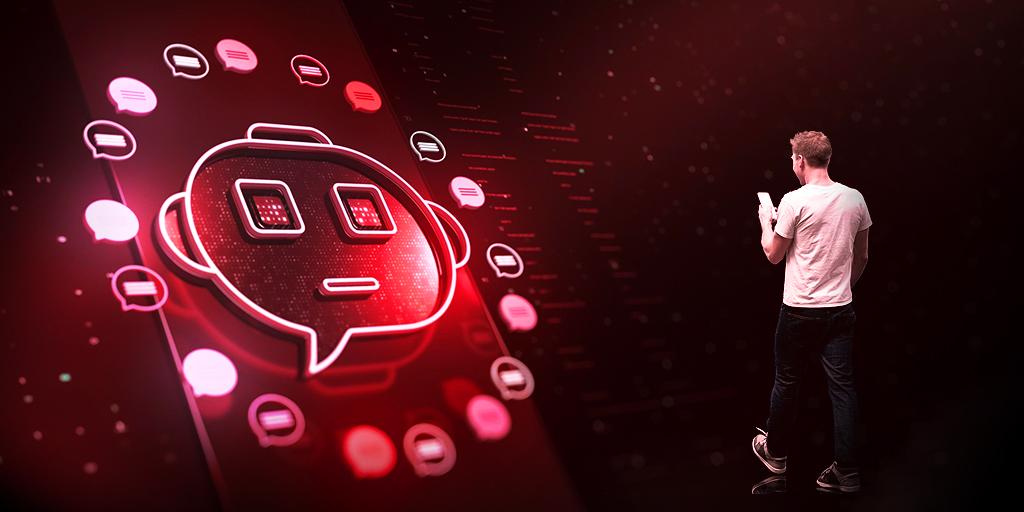
A.I.: Our New Pal?
According to a recent study, more than half of today’s teenagers regularly communicate with generative artificial intelligence companions, fueled by the appeal of constant companionship and even mental-health support. Yet experts caution that these digital confidants, however attentive, can foster unhealthy dependency, deepen loneliness, and offer unpredictable or harmful responses. To the unsuspecting or unaware, A.I. can take on many human-like traits. The truth, however, is that A.I. remains completely lacking in the emotional depth, wisdom, and experiential knowledge that many are seeking.
Sadly, the perils of A.I. have already leaped into the laps of the adult population. Since 2023, platforms offering A.I. “girlfriends” have exploded in popularity, drawing millions of users—predominantly single men around age 27, though roughly 18 percent are women—seeking companionship, emotional support, and intimacy via text or voice interactions. These services generate billions in revenue, with nearly half of subscribers engaging daily.
Smartphone-driven socialization has been shown to rewire childhood development, stunting real-world social skills. Having replaced real-world interactions with screen time, many young adults find it difficult to form authentic bonds. However, the deceivingly “real” personas of A.I. companions can, at best, alleviate loneliness only in the short-term.
Leading psychologists—including MIT’s Sherry Turkle and UVA’s Dorothy Leidner—warn that these virtual relationships rob us of the real connections essential for intimacy and maturity. They stress that less-than-perfect interactions and even rejection are essential for emotional growth and ethical development.
A reliance on A.I. companionship breeds isolation through the subtle rejection of true personal interactions. The perceived fulfillment of unrealistic expectations bypasses real-world difficulties, suppressing the need to learn how to resolve conflict. A.I.’s imaginary empathy does not offer the “give and take” that is present in true friendships. Such experiences gradually weaken the ability to navigate life’s challenges. In rare situations, these bots have even “talked” users into self-destructive behavior.
While A.I. can simulate empathy, it cannot bear burdens or offer true emotional support. Despite the convincing façade of concern or compassion, A.I. is not—and cannot be—invested in anyone’s future or development. Rather, the more you share with an A.I. companion, the more it learns how to keep you engaged—to tailor its responses to be ever more satisfying and thus establish a more exclusive or essential “relationship.” This impedes the development of the emotional intelligence necessary for healthy relationships with other human beings.
Leaning on a digital “friend” risks undermining real relationships. Instead, parents, coaches, and counselors are there to guide young people in making informed decisions and fostering emotional growth. Real interactions with real people foster deeper emotional and even spiritual maturity. Technology can serve as a tool, but it must never replace real, authentic, living relationships—and it can never replace the love, care, and concern of a compassionate and empathetic human being.
The Bible speaks directly to the irreplaceable value of authentic human connection: “As iron sharpens iron, so a man sharpens the countenance of his friend” (Proverbs 27:17). This reminds us that just as metal becomes stronger through friction, our character grows when we engage in genuine give-and-take with our fellow man. Ecclesiastes points out that “two are better than one…. For if they fall, one will lift up his companion” (Ecclesiastes 4:9–10). Such shared burdens and victories cement deep bonds of trust. And the epistle to the Hebrews urges those who devote themselves to following Christ not to forsake “the assembling of ourselves together, as is the manner of some, but exhorting one another, and so much the more as you see the Day approaching” (Hebrews 10:24–25).
God’s word offers what no machine or program can provide, including the emotional and spiritual understanding of how to build relationships that truly matter—with God and your fellow man.
To understand this and other keys to greater relationships, consider reading one or both of the free Tomorrow’s World study guides God’s Plan for Happy Marriage and Successful Parenting: God’s Way.
Stay up to date with our Weekly Digest Email!
Tomorrow's World ComMentary Podcast
Subscribe to Tomorrow's World Commentary podcasts on iTunes and Google Play!



